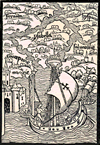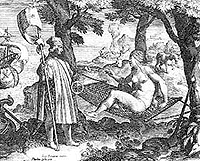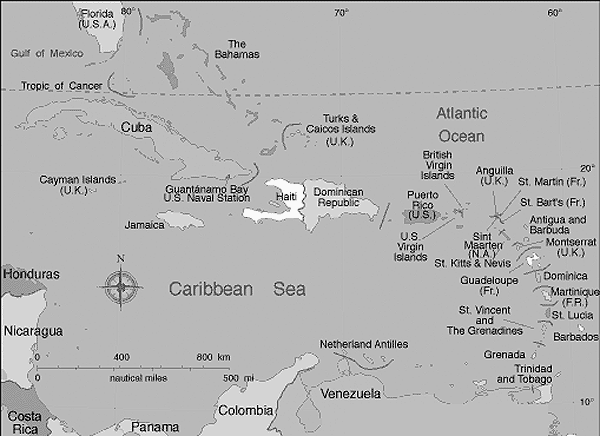|

Paper I, 4-5
pages (assigned topics): Due February 5 - 25%
Paper II, 5 pages (assigned topics): Due March 12 - 25%
Class participation (including close reading exercises and regular
attendance*) - 20%
Final Exam (passage identification, close reading, take-home essay):
Wednesday,
March 20, 12-3 pm - 30%
*
Notes
More than two unexcused absences will adversely affect your grade.
Since this course is mid-sized, it will balance lecture and student
participation. You should complete all of the reading by the date
it is assigned and come to class prepared to answer general and
detailed questions about the texts on the syllabus.
All written work must be completed in order to pass the course.
|
|

January 8: Introduction to the Course
January 10: Christopher Columbus, selected letters and digests from
the first two
voyages (R); Bartolomé
de Las Casas,  excerpts from A
Short Account of the Destruction of the West Indies (1552)
(R)
excerpts from A
Short Account of the Destruction of the West Indies (1552)
(R)
* class discussion of the
European imagining of the New World Native American
January 15: Mary Prince
(pp. 1-38, 64-70) [complete
electronic edition]
* An Introduction
to the Slave Narrative (William Andrews)
* The
Slave Narrative (Donna Campbell)
January 17: Caryl Phillips,
Cambridge
* African Slave Trade and the Middle
Passage (PBS)
* J.M.W. Turner, The
Slave Ship (1840) [another
copy]
January 22: Caryl Phillips, Cambridge
January 24: Aime
Césaire, excerpts from Discourse
on Colonialism (R) and Frantz
Fanon, "The Negro and Language," from Black
Skin, White Masks (R)
* class discussion of anti-colonial
writing and Négritude movement
January 29: Patrick
Chamoiseau, Texaco
January 31: Patrick Chamoiseau, Texaco; Derek Walcott, "A
Letter to Chamoiseau" (R)
February 5: Film screening: Soy
Cuba/I Am Cuba (Dir. Mikheil
Kalatozishvili, 1964; 141 min.)
*
Cuba reference
information
* Paper due
February 7: George
Lamming, "The Occasion for Speaking" and "Journey
to an Expectation," from The
Pleasures of Exile (R)
* The
Tempest 3.2
Caliban: "Remember
First to possess his books; for without them
He's but a sot, as I am, nor hath not
One spirit to command"
* Windrush
site (BBC); Passenger
list, SS Empire Windrush (1948); development of a West
Indian literary community in London (BBC)
February 12: Sam
Selvon, Moses Ascending
* Robinson
Crusoe
February 14: Sam Selvon, Moses Ascending
*
Supplementary poem: Louise Bennet, "Dear
Departed Federation"
February 19: Film screening: Handsworth
Songs (Dir. John
Akomfrah, 1986; 61 min.)
* Suggested film screening at Campbell
Hall, Life and Debt
(2001): 7:30 & 9:30 pm
February 21: Jamaica
Kincaid, A Small Place and "Girl"
(R)
February 26: Michelle
Cliff, No Telephone to Heaven
February 28: Michelle Cliff, No Telephone to Heaven
On the
Arcadian Theme (Et in Arcadia)
1963 Birmingham
Church Bombing (pp. 100-2)
Post Independence:
1972-1983
Post Independence:
1984-1993
Nanny of the Maroons (part
I/part
II)
Marcus
Garvey
March 5: Derek
Walcott, "Laventille" (R)
March 7: Stuart
Hall, "Cultural Identity and Diaspora" (R)
March 12: Nation Language: Edward Kamau
Brathwaite, History of the Voice (R)
* Paper due
March 14: Dub and nation language poetry:
Edward Kamau Brathwaite, "The Dust"; Michael Smith, "Mi
Cyaan Believe It"; John Agard, "Listen
Mr. Oxford Don" and "Mek
Four"; Linton
Kwesi Johnson, "Five
Nights of Bleeding," "Inglan
is a Bitch," and "English Don"; Grace Nichols,
"Invitation"; Louise Bennett, "Noh
Lickle Twang"; Bob Marley, "Talkin' Blues"; Mutabaruka,
"Butta Pan Kulcha" (R); Valerie
Bloom, "Language Barrier"
"I have crossed an ocean
I have lost my tongue
from the root of the old one
a new one has sprung."
-
Grace
Nichols, I Is a Long-Memoried Woman
"…this
particular form does not speak the Queen's English any longer. It
speaks English as an international language which is quite a different
thing. It speaks a variety of broken forms of English: English as
it has been invaded, and as it has hegemonized a variety of other
languages without being able to exclude them from it. It speaks
Anglo-Japanese, Anglo-French, Anglo-German or Anglo-English indeed.
It is a new form of international language, not quite the same old
class-stratified, class-dominated, canonically-secured form of standard
or traditional highbrow English."
- Stuart Hall
You
taught me language; and my profit on't
Is, I know how to curse.
- Shakespeare, The Tempest (1611)
"The
English language has been the linear tongue of colonial discoveries,
racial cruelties, invented names, the simulation of tribal cultures,
manifest manners, and the unheard literature of dominance in tribal
communities; at the same time, this mother tongue of paracolonialism
has been a language of invincible imagination and liberation for
many tribal people. English, a language of paradoxes, learned under
duress by tribal people at mission and federal schools, was one
of the languages that carried the vision and shadows of the Ghost
Dance, the religion of renewal, from tribe to tribe on the vast
plains at the end of the nineteenth century."
- Gerald Vizenor, Manifest Manners: Postindian Warriors of Survivance
|


 excerpts from
excerpts from